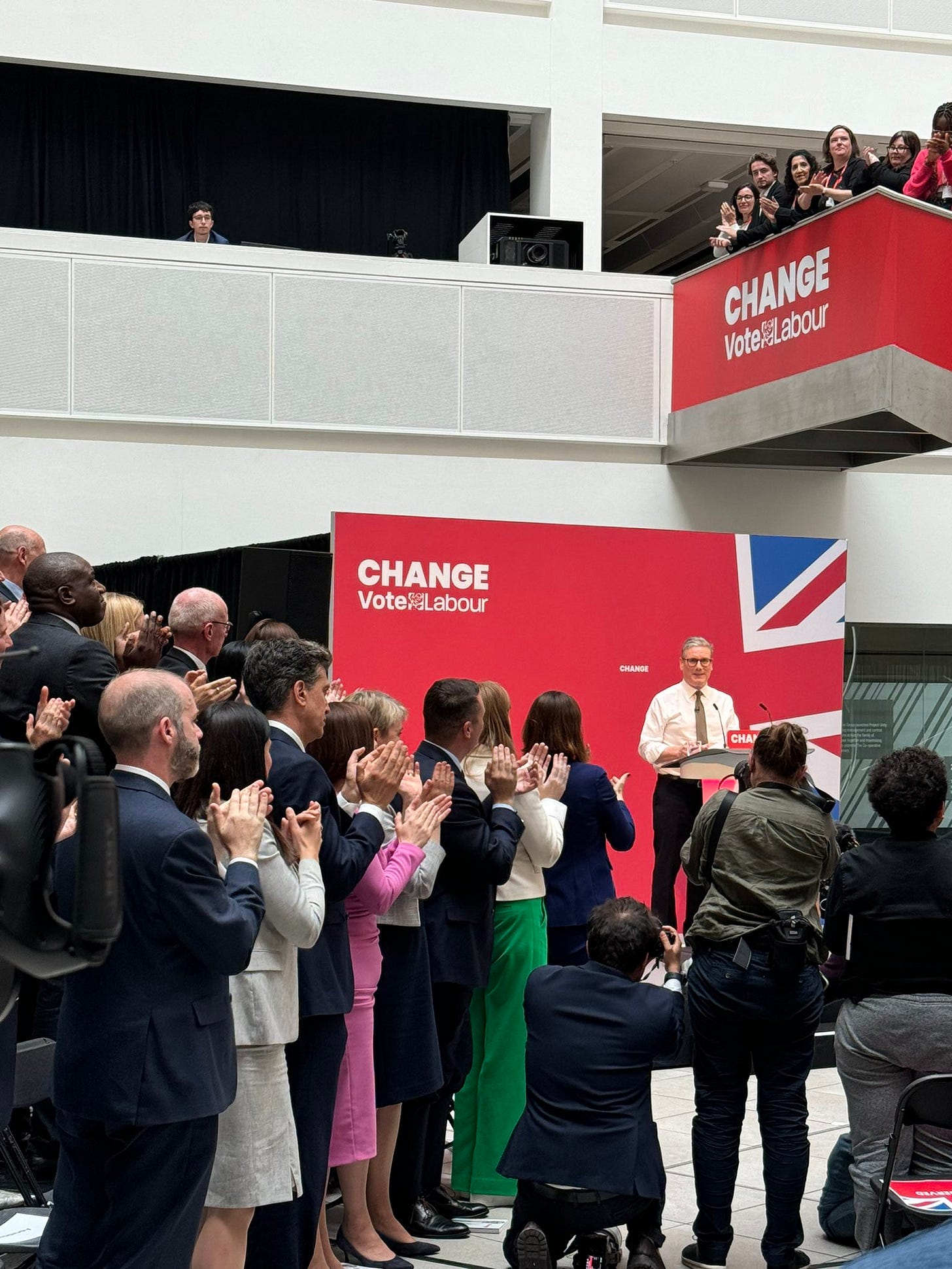Labour’s business friendly approach only goes so far
The week Private Equity became a meme
Hello Rainmakers,
It’s been manifesto week as the General Election campaign hit the half way mark.
You can read TheBusinessDesk’s coverage of Labour and the Conservative manifesto promises.
It was noticeable that there was far more attention and reaction to Labour’s proposed programme of government than Rishi Sunak’s Conservatives.
Thanks for signing up to receive Rainmakers.
WHAT A CHANGE OF GOVERNMENT MIGHT MEAN FOR M&A
But we’ve tried to look at the details of both offers through the lens of a professional practitioner in the corporate finance world.
Some slightly hysterical coverage earlier this week claimed that raising Capital Gains Tax would be the death of entrepreneurship. I won’t embarrass the author of that claim by naming them, but a threatened rise was also denied by Labour who have committed to freezing the rate in the cause of keeping Britain competitive.
Labour’s manifesto launch at the Co-operative headquarters in Manchester had the economy and good relations with business at the front and centre.
On one hand economic stability and a growing economy is always a better environment for business confidence, and thus welcomed by most people engaging in mergers and acquisition activity.
The honourable exception would be the turnaround and insolvency world, but no-one actively wants them to do well.
The focus on key sectors in Labour’s new industrial strategy, which will be advised by an Industrial Strategy Council, made up of representation from all nations and regions, business and trade unions included a nod to how the kind of “pro-business environment” Labour want to foster will focus on specific industries named as priority sectors.
These included financial services, automotive, life sciences, and creative sectors.
Also of interest will be a planned £7.3 billion National Wealth Fund will support projects like clean energy investment and is designed to attract additional private sector investment.
Expect a further burst of interest in the private healthcare market given the comfortable embrace Labour has given to “use spare capacity in the independent sector to ensure patients are diagnosed and treated more quickly.”
But Labour also singled out private equity for a special mention, and not in a good way.
Regular Rainmakers readers will recall we reported in detail on the strenuous efforts made behind the scenes by the British Venture Capital and Private Equity Association (BVCA) to tone down some of Labour’s attacks on a sector that had become synonymous with greed.
Rachel Reeves and former Addleshaw Goddard trainee Jonathan Reynolds have pressed the flesh with the sector, and there appears to be a recognition of the role investment needs to play in a growing economy. However, when it came to the manifesto the determination to close the loophole on carried interest for partners in private equity funds was there in red and white.
“Private equity is the only industry where performance-related pay is treated as capital gains. Labour will close this loophole,” the manifesto said.
In short, partners in private equity funds or limited partnerships can earn income from their carried interest in an investment (though equally, they may not). But it has traditionally been treated as a capital gain rather than a cash bonus, and has been subject to the lower capital gains tax rate of 28%, rather than the top rate of income tax, which is 45%.
Michael Moore, BVCA chief executive (above, with Greater Manchester Mayor Andy Burnham) held back his obvious disappointment that Labour is persisting with its plan to close the loophole on carried interest for partners in private equity funds.





